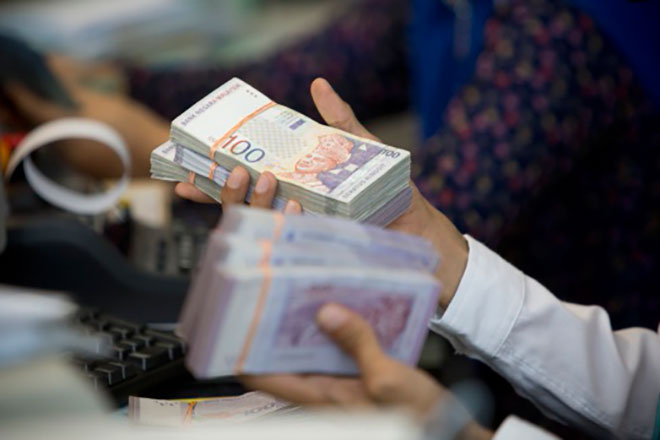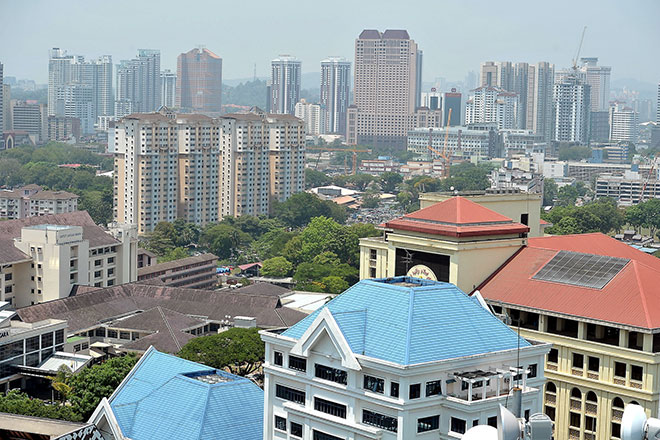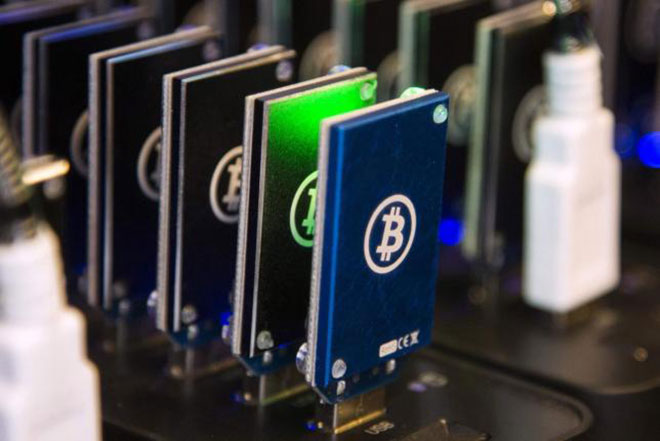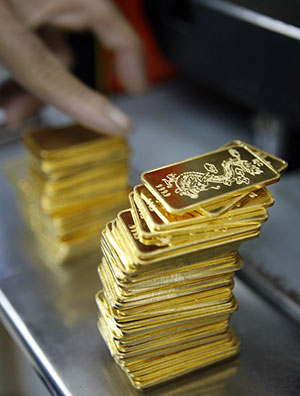 KUCHING: Investors today are feeling the pinch in their investments whether they are playing in the stock market, commodities or generally in businesses across the country.
KUCHING: Investors today are feeling the pinch in their investments whether they are playing in the stock market, commodities or generally in businesses across the country.
Whether it was the Goods and Services Tax (GST), the free-falling ringgit, the hike in inflation or the drop in global economic indicators – a myriad of factors come to play when it comes to figuring out why investments are being chipped away by the economic gloom that is overcast in today’s fiscal climate.
The situation looks difficult for investors trying to find the right safe haven to protect their asset worth.
From one end, Malaysians feel the pinch as they struggle to keep up with increasing expenses.
One such factor is the declining ringgit, highlights iMoney (https://www.imoney.my/) editor Iris Lee.
“Some are of the opinion that if you just stay put in Malaysia and buy products made in Malaysia, you won’t be affected by the declining currency.
“But this can’t always be the case since much of what we use is still imported,” she told BizHive Weekly in an interview recently.
“No matter how hard you try to avoid buying imported products, we may not be able to avoid products made with imported materials.
“Unfortunately, the majority of imports and exports in this country are still heavily traded in US dollars.
“Some importers and distributors may even stop distributing certain products due to the fluctuating currencies to avoid risk.
“Not just consumers, businesses with foreign debts or dealings will find it hard to stay afloat due to the dismal ringgit against the US dollars.” Even if you’re not mainly affected by the falling ringgit, Lee said there was uncertainty in the market due to other factors like the implementation of GST and the large jump in inflation has increased the cost of living.
“It’s a double whammy – your domestic consumption is hurt along with your ability to consume imported goods.
“So, yes it is harder now.
“Remember that saving alone is not enough. In these trying times, we need to protect our money more than ever.
Protect it from the rising inflation, the sliding currency, and also the uncertain market.
Investing in stable instruments is the mantra right now.” Red flags in global markets On the other end, global markets do not bode well for investors.
Last week, Asian stocks witnessed a bout of volatility as further evidence of slowing growth in China’s economy brought uncertainty to global markets.
An early sell-off followed a cheerless day on markets in the US and Europe as clouds gathered over the worldwide economy, amid mounting signs of stumbling growth. Other currencies also followed suit with the ringgit.
Last week, the Australian dollar – which is heavily linked to demand for the country’s abundant natural resources – plumbed six-year lows with figures out of Canberra showing the economy logged a slower-than-expected 0.2 percent quarterly expansion.
This came after Canada officially entered recession, hit hard by stubbornly-low oil prices.
While the Shanghai stock market is somewhat decoupled from the real economy – many analysts and players acknowledge it is akin to gambling – wild ructions there are seen as worrying indications of Beijing’s ability to manage structural changes, as highlighted in last week’s feature in BizHive Weekly.
Commentators say China’s high government-spending model of the last three decades is unsustainable, and needs to morph into consumer spending.
They point to the country’s huge population as a vast, under-tapped source of demand that could offer opportunities for growth; but fears abound that Communist Party managers are struggling to shepherd the changes.
However, not all is doom and gloom for investors as pockets of opportunities persist.
BizHive Weekly talks to a few investors and specialists on what investment opportunities stay above the float.
Perseverance in properties
The glaring drop in the ringgit’s value could not be more prominently felt in any other sector than in properties, largely due to its high base value.
According to AllianceDBS Research Sdn Bhd, developers have incorporated more ‘affordable homes’ into their project pipelines to tap on still-robust demand for ‘affordable properties’ from genuine homebuyers.

“Value-for-money properties priced at below RM700,000 per unit as different property hotspots continue to be well-received, especially township developments with lifestyle amenities,” outlined analyst Quah He Wei in a September 9 report.
“However, pricing will remain a major determinant of sales because of accelerating supply over the next two years.” Property investors within Sarawak itself will likely see a slowdown in property launches as channel checks by BizHive Weekly notice delays in launches within Kuching itself.
Certain industry players have confirmed this to be due to construction costs.
“There are less buyers in the market now post-GST as construction costs have increased,” the source said, declining to be named.
Earlier this week, Deputy Finance Minister Datuk Chua Tee Yong said it has been a challenging time for developers, especially those with new projects as imported materials would be more expensive.
“The current situation has also derailed consumer sentiments in the secondary market, resulting in a slowdown in price growth.
“However, for foreign investors, the Malaysian property market seems cheaper now but that doesn’t warrant the government to revise the minimum RM1 million property price eligible for foreign ownership as it does not contravene with local demand, he said.
“Most of the (local) demand is for properties between RM500,000 and RM1 million. That consisted of the bulk of purchases recently.
“So, I think the RM1 million figure is still relatively looking okay at this juncture,” he said to reporters at the launch of the Board of Valuers, Appraiser and Estate Agents’ new office and the fifth edition of the Malaysian Valuation Standards on Tuesday.
Increase in foreign interest
With the ringgit hitting record lows against a basket of weighted currencies especially the Singapore dollar, investing in Malaysian properties could not have come at a better time.
“A confluence of a strongly regulated Singapore property market where prices are still not tapering to significant lower levels, against a much cheaper ringgit is in effect payday for Singaporeans and Singapore residents with limited funds,” highlighted Vinod Nair, founder and chief executive officer of MoneySmart.sg in a Bernama interview.
“This is because they are now able to buy luxury properties in key Malaysian cities like Kuala Lumpur, Petaling Jaya and Penang.” Vinod said the topline property categories to consider would certainly be luxury condominium developments in the central business district areas and landed property in posh enclaves like Bangsar and Damansara Heights for instance.
He further noted that foreign direct investments were a powerful tool for Malaysians to hedge against the ringgit.
“If the cost of buying a Malaysian property is reaching record lows, then an eventual currency correction which will eventually happen, may slow down property sales.
Iskandar Malaysia, for example, does have a lot of unsold developer units, so now is the perfect time to offload inventory.
“Ultimately, now is the time to review the capital gains tax – maybe a reduction or a temporary reprieve might be an excellent idea to attract buyers,” he said.
Still a good bet
Following the weakening ringgit, some investors have express concerns of their investment in Iskandar Malaysia.
Despite all these, Vinod finds that Malaysia is still an attractive investment for property buyers.
“For those who have already invested, the best advice would be to wait out this bad period.
“I don’t envision the Federal Government of Malaysia rolling out capital measures like cash injections or pegging the ringgit, so really this is an exercise in patience for existing investors.” Lee from iMoney concurred with this view, noting that investing in properties has always been one way to protect your money through the currency volatility.
“There has been talk recently that the property market was approaching a bubble and it looks like it’s about to pop with the recent slowdown,” she pointed out.
“Due to that, one may opine that investing in local properties may not see as much profit as before when it comes to capital appreciation.
“Generally, capital appreciation within the local property sector can range between five and 15 per cent per year, on average.
In a good year, it could increase to between 20 to 25 per cent.
In a bad year, maybe just five per cent.
“Of course, for those with capital and strong holding power, there could be gains to be had in investing in this down market but it’s not clear when the rebound is due to happen.”
Digital currencies: Dessert or Devil’s fruit?
The rise of cryptocurrencies as a new investment tool raises many questions for new investors, being a new form of digital currency and its key distinguishing feature is that it is decentralised and operates completely peer to peer.
This means there is no need for a central bank or authority and instead operates by way of consensus among its users.
One of the issues of digital currencies, before the creation of Bitcoin, was that it always required a central issuer that needs to be trusted.
In the same way we trust governments not to simply create money for specific people or to make your bank balance disappear, you would then have to trust whoever who created the coin not to secretly enrich themselves.

This was a major problem since with little regulation the creator of a purely digital currency can easily manipulate balances, trades and prices without the knowledge of other holders of the digital currency which is the case with many scam or fake cryptocurrency coins, highlights Reuben Yap, a local investor in digital currencies and industry observer.
“Cryptocurrencies solve this problem by having all its users maintain a copy of the ledger which records all transactions made through it (called the blockchain) and using mathematics and encryption technologies to prevent manipulation, secret changing of balances or issuance of new coins,” he detailled to BizHive Weekly.
“A proper cryptocurrency cannot even be manipulated by its creator.
“What makes it an interesting investment option is that there are very low barriers of entries and you can invest any sum of money into it unlike other investment options which often require a minimum investment.” As this is mostly unregulated, Yap says no one can stop you from storing, sending or transporting cryptocurrencies and many use it to move money internationally almost instantaneously and with very low fees.
“If done correctly, this can be a lot faster and cheaper than using traditional money remittance options such as telegraphic transfers,” he added.
Cryptocurrencies also have high volatility and prices can swing widely which means you can either make a lot of money very fast or lose it very fast too.
“To put this into context, the price of Bitcoin which is already considered to be one of the most stable cryptocurrencies can vary in double digit percentages in one day.
“I would consider it a very high risk investment and honestly it is not the right tool to hedge against a depreciating currency,” he forewarned.
“However, because of cryptocurrencies’ relatively small market capitalisation, it remains quite easy for people with a lot of money to artificially inflate or dump market prices on exchanges much like penny stocks on the stock exchange.
“So, although cryptocurrencies are very difficult to manipulate in terms of its own balances, its ‘real world’ value can be subject to market manipulation by big players especially with the smaller cryptocurrencies and is often referred to as ‘whale manipulation’ or “pump and dump”.”
iMoney’s Lee concurred with Yap, adding that the beauty of Bitcoin is that it is not controlled by any central bank and as such to a certain extent, Bitcoin is immune from currency wars.
“However, the extreme fluctuation in the beginning has many people steer clear of it as an investment.
But based on observations, Bitcoin appears to be relatively stable recently in its very short history, and this has made it more appealing to people as a sort of safe haven currency.
“On paper, Bitcoin can make a good long-term investment because it has a finite supply, and as a result its value would likely increase when it is more widely used.
“Also like metal commodities, Bitcoin can still be highly volatile (though by other tech related factors) over the long-term and investors should look at the bigger picture.
“If you are on the right side of the trade, it can be profitable. However, always look at your overall investment portfolio, your risk appetite and how bitcoin fits into everything before deciding on something as new as this.
“In these times, it’s may not be the best solution as an investment instrument but presently it is another alternative for those looking for a stable currency to park their money with.”
The many, many kinds of Coins
Bitcoin is by far the biggest cryptocurrency with a market cap of US$3.3 billion.
It is the first decentralized cryptocurrency that started it all and has the widest merchant adoption with big companies such as Dell, Microsoft, Expedia and Overstock accepting the currency.
It is also the easiest cryptocurrency to buy with fiat money (USD, MYR, SGD etc) and in Malaysia we have several BitCoin exchanges such as BitX.co, Coinbox.biz and BTC.my.
Locally in Malaysia, we have IPMart (smartphones and consumer electronics), BolehVPN (internet privacy services), HostPro2U (web hosting) being some of the larger merchants accepting BitCoin.
It stands to be the cryptocurrency with the best chance of widespread adoption and there is a great deal of investment being put into developing services around it such as BitPay and Coinbase.
Recently Barclays bank, one of UK’s largest banks will begin to allow charities to accept BitCoin late this year with a formal rollout early next year.
One BitCoin today is worth about US$225. All other cryptocurrencies besides BitCoin are referred to as ‘alt coins’ short for ‘alternate coins’.
Some are minor modifications of BitCoin that still use the majority BitCoin’s base code (LiteCoin, DogeCoin), others have more extensive modifications while still using BitCoin’s base code (Dash, PeerCoin) while others are coded from the ground up (Ethereum, NXT, NEM, Bytecoin).
There are many other coins out there some which serve specific purposes such as Storjcoin for cloud storage and NameCoin which allows people to register domain names using its currency and operates as a decentralised DNS.
There are hundreds of cryptocurrencies out there, some which are solely created to enrich the coin creators.
The vast majority of alt-coins die a natural death when there is no more interest or development so investors must be careful when deciding to invest in a cryptocurrency.
Tips when investing in Cryptocurrencies
1. Invest in well known cryptocurrencies with a decent market capitalization and do your research
coinmarketcap.com and coingecko.com are excellent sites to serve as a starting point in determining which coin to invest in.
These coins have lower risks of dying and are less likely to be scams (though it is by no means a sure thing).
Fact check their claims and do a Google search if there has been any scam claims.
Many scam coins such as Utoken and OneCoin (http://cointelegraph.com/news/114399/one-coin-much-scam-onecoin-exposed-as-global-mlm-ponzi-scheme) capitalise on the fact that most people don’t understand cryptocurrencies and make very lofty claims that can be exposed with some research.
Consider joining cryptocurrency communities such as https://www.facebook.com/groups/bitcoinsarawak/ to find out more and ask more experienced people.
2. Don’t believe anyone who ‘guarantees’ price appreciation
There is no such thing as a guaranteed price increase of the coin, and anyone who can do that is either a fake cryptocurrency or just making promises that they can’t keep.
There’s a lot of fake cryptocurrencies out there claiming to be the next ‘BitCoin’.
In Malaysia there are already a few claiming about ‘coin IPOs’ and fancy names such as ‘coin split’.
No one can predict the markets unless they are the market themselves.
3. Invest at your own risk
Cryptocurrencies are not regulated at all in Malaysia and if anyone scams you, legal remedies are few and far between.
Always err on the side of caution and don’t invest more than you can afford to lose.
4. Store your cryptocurrencies securely
Store cryptocurrencies in secure computers and make regular encrypted backup.
When storing large amounts of cryptocurrencies, consider using hardware wallets such as Trezor (https://www.buytrezor.com/) or printing paper wallets (https://walletgenerator.net/) and storing them offline where they can’t be hacked.
Don’t store large amounts of cryptocurrencies in exchanges or web wallets as if those exchanges or web wallets go bust or are hacked (which is very common), there is very little recourse to recover them.
One of the most prominent examples is Mt. Gox, which was then the largest BitCoin exchange which lost some US$460 million worth of BitCoins due to an alleged hack. Only transfer what you need to convert.
There has been an increase in awareness of digital currencies in general but unfortunately this due to the rapid proliferation of scam coins which often compare themselves to BitCoin.
As such there is a very limited understanding of what cryptocurrencies actually are beyond their existence and a very surface understanding.
The main issue of this stems from people looking to get into cryptocurrencies for pure profit instead of taking the time to understand it which makes them very vulnerable to scams.
5. Appreciate that cryptocurrencies are very volatile in price
High volatility means high risk and high reward.
Those with some understanding of technical trading may have an advantage in reading trends in short term trends and prices.
Always have a stop-gap loss point and don’t invest more than you can lose.
Going for the gold
Metal commodities such as gold are another area of interest for investors, being the “original” form of investment since time immemorial.
Gold has always been an investment favourite as a vehicle to hedge financial uncertainty or to capitalise on price movements.
iMoney’s Lee observed that prices of hard commodities, such as oil and metals, had fallen from year-to-date highs.
“Some may have opined that now is a good time to buy due to the lower prices, but there is also a fear of continuous fall across all metal commodities and we’re not quite sure they’ve bottomed yet,” she observed.

“Like all commodities, metal commodities are highly volatile asset classes, and one should only invest if one truly understands the risk and volatility involved.” Lee went on to add that commodities do not move in lockstep with stocks and bonds, so adding commodities to a portfolio tends to increase the portfolio’s diversification.
“To manage the risk better, investors can get commodity exposure through stocks of companies that profit from natural resources, such as mining company.”
Save and diversify
In a nutshell, having savings is perhaps the most important advice one can give to the general public/consumers at large to survive this period.
“Having savings is extremely important now.
As times look to be getting hard, having a contingency fund can help you manage your finances better against whatever may come,” affirmed iMoney’s Lee.
“However, savings alone isn’t enough.
You need to have a robust investment portfolio to protect your money against inflation (that’s on the rise).
“It’s difficult but it’s extremely important to balance out liquidity through your emergency funds and investments in order to stay ahead of this poor economic environment.”
For those with an existing investment portfolio, Lee said it was time to review it in lieu of the recent changes in currency.
“For example, if you’re investing in Malaysian companies that are exposed to declining oil prices or are heavily reliant on US dollar imports you may want to reassess your holdings.
Weigh every financial decision wisely because every sen counts today.”
